Skip over navigation
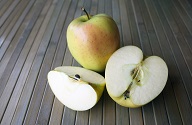
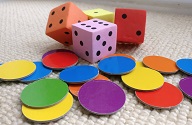
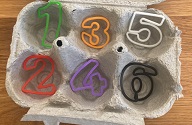
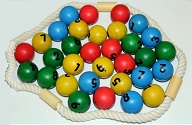
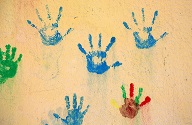
Or search by topic
Number and algebra
Geometry and measure
Probability and statistics
Working mathematically
Advanced mathematics
For younger learners
Number Book
Age 3 to 5
Counting reliably with numbers from 1 to 20
Sorting and describing
Sorting and describing





Children often enjoy collecting objects and counting them, and many love having a sticker book.
Adults could suggest creating a 'number book' when they see a child picking up one or two related objects.
The Activity
Children are asked to collect four (or whatever number is appropriate) of a range of objects both indoors and outdoors, for example, they may choose four leaves, four stones, four play figures... They are invited to create their own book, 'My Book of 4', by sticking the objects into a plain-paged book, where appropriate, or by sticking in photos of the objects.
Children are asked to collect four (or whatever number is appropriate) of a range of objects both indoors and outdoors, for example, they may choose four leaves, four stones, four play figures... They are invited to create their own book, 'My Book of 4', by sticking the objects into a plain-paged book, where appropriate, or by sticking in photos of the objects.
Encouraging mathematical thinking and reasoning:
Describing
Tell me what you are looking for.
Tell me about these things you've collected.
Tell me about your book.
Tell me what you are looking for.
Tell me about these things you've collected.
Tell me about your book.
Reasoning
Do you need any more? How do you know?
Have you got enough? How do you know?
Have you got too many? How do you know?
Do you need any more? How do you know?
Have you got enough? How do you know?
Have you got too many? How do you know?
Opening Out
Provide further opportunities for children to do similar activities in different environments, e.g. on forest visits, in the playground, in the school garden, in the PE store...
Provide further opportunities for children to do similar activities in different environments, e.g. on forest visits, in the playground, in the school garden, in the PE store...
Recording
Will you keep that/them for your book?
How shall we put them in your book?
Could we draw/take a picture of these things for your book?
Will you keep that/them for your book?
How shall we put them in your book?
Could we draw/take a picture of these things for your book?
The Mathematical Journey
Counting skills:
- saying one number for each object
- remembering the pattern of the number sequence
- understanding cardinality i.e. that the last number gives the total
Same and different:
- grouping e.g. these are all leaves, these are all square-shaped buttons
Development and Variation
You could encourage children to group together to count their objects in total and perhaps to create a new book as a result.
You could suggest that the whole group/class creates a counting book of numbers in order from 1. Pairs of children could be given a particular number and asked to find that number of objects of their choice. You could then assemble the book as a whole group/class. It would be lovely for the book to follow the group up the school, where possible.
The following NRICH Early Years activities might offer similar mathematics: Tidying, Incey Wincey, Dice and Washing Line.
You could encourage children to group together to count their objects in total and perhaps to create a new book as a result.
You could suggest that the whole group/class creates a counting book of numbers in order from 1. Pairs of children could be given a particular number and asked to find that number of objects of their choice. You could then assemble the book as a whole group/class. It would be lovely for the book to follow the group up the school, where possible.
The following NRICH Early Years activities might offer similar mathematics: Tidying, Incey Wincey, Dice and Washing Line.
Resources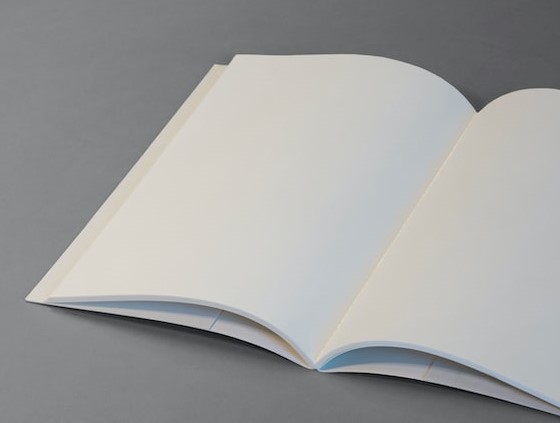
Simple plain-paged scrap books.
Glue/paste.
A variety of collections of objects in your setting, some of which may be present all the time, some of which may be introduced for shorter periods.
An outdoor space.
A camera will be useful to take photographs of the items that can't be stuck into the books.

Simple plain-paged scrap books.
Glue/paste.
A variety of collections of objects in your setting, some of which may be present all the time, some of which may be introduced for shorter periods.
An outdoor space.
A camera will be useful to take photographs of the items that can't be stuck into the books.
Download a PDF of this resource.


